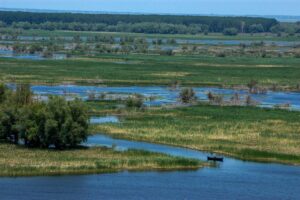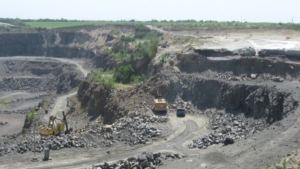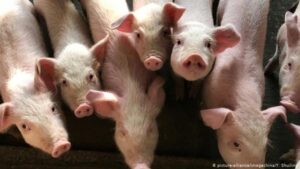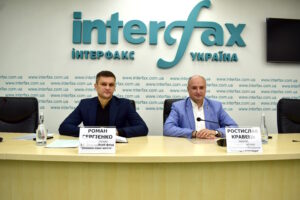
The US Treasury Department has again granted a postponement until July 29 on the application of sanctions against Serbia’s NIS, according to a statement from the company. Energy Minister Dubravka Jedovic-Handanovic, quoted by Serbian media, said that “sanctions against NIS have been officially postponed, as confirmed in writing last night.”
Serbia has previously received several postponements of sanctions against NIS from the US, most recently until June 27.
As reported, on January 10, the US imposed sanctions against two Russian oil companies, Gazprom Neft and Surgutneftegaz, as well as their subsidiaries. The SDN List also includes Gazprom Neft’s Serbian subsidiary, NIS. The US then postponed the imposition of sanctions against NIS.
At the end of February, Gazprom Neft transferred 5.15% of NIS shares to Gazprom. Gazprom Neft now owns 44.85% of NIS shares, while Gazprom owns 11.3%. Another 29.87% of NIS shares are owned by Serbia, with the remainder held by minority shareholders.
Serbian President Aleksandar Vučić reported that the US is demanding the complete withdrawal of Russian capital from NIS. He recalled that in 2008, the Serbian government sold control of NIS to Russia’s Gazprom Neft, and over the past years, the Russian company and NIS have contributed to significant revenues for the Serbian budget, as well as the development of many projects.
NIS is the only company in Serbia engaged in the exploration and production of hydrocarbons, and it also owns a large oil refinery in the city of Pančevo. The company dominates the Serbian petroleum products market, and the NIS network of gas stations is present in Bosnia and Herzegovina, Bulgaria, and Romania, with a total of more than 400 stations.

Ahead of the annual Danube Day, experts and environmentalists are drawing attention to the large-scale environmental threats facing Europe’s largest river system. Over the past 150 years, the Danube has lost about 80% of its natural floodplains and wetlands due to human intervention, dam construction, hydropower, active shipping, and river regulation. This has led to a sharp decline in biodiversity, the disappearance of sturgeon fish, and a weakening of the ecosystems’ ability to withstand floods and droughts.
The total length of the Danube is approximately 2,857 km. It is the most international river in Europe, flowing through or serving as the border of ten countries.
In Germany — about 214 km,
in Austria — 294 km,
in Slovakia — 166 km,
in Hungary — 334 km,
in Croatia — 129 km,
in Serbia — 269 km,
in Bulgaria — 148 km,
in Romania — 825 km,
in Moldova — 49 km,
in Ukraine — about 109 km.
Approximately 83 million people live in the river basin, more than 20 million of whom depend on the Danube as a source of drinking water. The capitals of four European countries are located along the Danube: Vienna, Bratislava, Budapest, and Belgrade.
Among the most serious problems are:
pollution with organic and toxic substances coming from sewage and agricultural land;
clogging with household waste, including plastic;
climate change and water level fluctuations;
invasive species;
construction of dams and hydroelectric power plants that interfere with fish migration;
poaching of sturgeon for black caviar.
Hydraulic structures such as the Iron Gate dam on the border between Serbia and Romania have completely blocked the path to spawning grounds for dozens of fish species.
The WWF Living Danube Partnership initiative has already restored more than 1,700 hectares of wetlands and improved water supply over an area of 3,700 hectares.
The LIFE-Boat 4 Sturgeon project is working to conserve sturgeon, create a genetic bank, and restore populations.
Rational water use systems are being developed, water purification filters are being introduced, and sustainable land use is being implemented.
Companies operating in the Danube basin are being held accountable for water resources.
The Danube remains a vital river for tens of millions of people and the last refuge for unique species of fish and birds. The conservation and restoration of the Danube requires international coordination, a systematic approach to nature conservation, and conscious policies on the part of the countries in the region. The river that Strauss wrote about in his famous waltz “On the Beautiful Blue Danube” must retain its natural character in the 21st century.

The Architecture of Resilience Veterans Institute offers opportunities for:
Free education* in over 30 specialties and >100 educational programs
Retraining, courses, second higher education, master’s and postgraduate studies
Psychological support and rehabilitation
Participation in projects for the restoration of Ukraine
Partnership programs with employers (Axor, Barks, Google, Microsoft, Cisco, etc.)
Training formats: full-time, part-time, online.
We work with communities throughout Ukraine.
Individual support from admission to employment.
We invite everyone to online or offline meetings with our team. We will tell you:
▪️ how to apply
▪️ what benefits veterans and their children are entitled to
▪️ how to receive compensation for training
▪️ which educational programs are most relevant for reconstruction

Program details:
www.Veterano.info
Write to us or leave a request on the website:
+38 073 94 96 179
+38 050 22 35 182
+38 067 49 81 098
center@uvc.in.net
veterano@knuba.edu.ua
Head: Artem Goncharenko – +38 073 177 72 73
Let’s build the future together. Start with education today!
Partner universities:
• Kyiv National University of Construction and Architecture
• National University of Physical Education and Sports of Ukraine (NUPESU) — a key institution on the basis of which a training and rehabilitation center for veterans has been created.
• Western Ukrainian National University
• Yuri Kondratyuk Poltava Polytechnic National University
• Vasyl Stefanyk Precarpathian National University
• National University of Life and Environmental Sciences of Ukraine
• Drohobych National Pedagogical University
*“Free education” refers to participation in state compensation programs, grants, scholarships, and support from employers.
Important: admission during the basic admission campaign within the standard terms.

During its spring offensive, Russian forces took control of one of Ukraine’s most promising lithium deposits — the Shevchenkivske site in Donetsk region. Previously under development by an American critical minerals company, the site was seen as a key asset in the growing economic partnership between Kyiv and Washington in the field of strategic resources. Its capture now poses serious risks to future joint projects and has already raised concerns among Western investors.
The Shevchenkivske deposit contains significant reserves of spodumene — a mineral from which lithium is extracted. Lithium is essential for manufacturing batteries used in electric vehicles and energy storage systems. Ukraine had earlier signed a framework agreement with the United States on cooperation in the field of critical raw materials, including the development of domestic lithium, titanium, and rare earth element extraction — crucial for the West’s green energy transition. The agreement envisioned attracting investment into Ukrainian subsoil resources. However, with Shevchenkivske now under Russian control, the feasibility of that cooperation is under threat.
Myroslav Zhernov, the director of the company holding the license for the site, confirmed the loss in a comment to The New York Times. According to him, the battle for the deposit lasted several weeks: “It was very hot. They were bombing with everything they had. And now they’re there.” Zhernov warned that this may not be the end: “If the Russians advance farther, they will control more and more deposits.”
The New York Times reports that signs of activity have already been observed on the occupied territory: an assessment of reserves is underway, and preparations for future extraction may be in progress. In this way, control over lithium could give the Kremlin not only military but also geoeconomic advantages. The article notes that Russia is already leveraging its influence in global raw materials supply chains, particularly in uranium markets.
Although Ukraine still possesses two other major lithium deposits in its western regions, Shevchenkivske was considered the most promising due to its high spodumene concentration — up to 90%. In peacetime, the development of this site could have become not only a source of revenue, but a strategic lever for integrating Ukraine into Western critical materials markets.
Former head of the State Service of Geology and Mineral Resources, Roman Opimakh, explained that such investments are subject to enormous risks during wartime: “Security and control over a deposit is the main prerequisite. The military threat scares away investors, and the loss of such a site effectively nullifies any near-term development plans.”
Observers note that the war is increasingly taking on characteristics of economic conflict. Russia is not only destroying infrastructure but is actively targeting resources that could be useful to itself or potentially strengthen Ukraine. Gaining control over lithium assets allows for pressure on Western corporations and contributes to reshaping global dependencies.
Despite the loss, Zhernov said his company is not giving up on investing in Ukraine and is exploring other options. However, he admitted the situation has fundamentally changed risk assessments: “Before, we saw this project as a driver of economic growth. Now — it’s just another front in the war.”
Earlier, the Experts Club information and analysis center produced a detailed video analysis of the prospects for rare earth element mining in Ukraine.

Over the past three decades, pig farming has remained one of the most important components of global agricultural production. It has played a key role in providing the population with animal protein, shaping export flows in Asia and Europe, while remaining vulnerable to global epidemiological risks. Experts Club analysts have studied changes in the global pig population between 1990 and 2023.
“Pig farming is an industry where economics is closely intertwined with biological risks. It is extremely profitable in stable conditions, but it instantly suffers from any disruptions in the veterinary or logistics chain,” said Maxim Urakin, PhD in Economics and founder of the Experts Club information and analytical center.
In the early 1990s, the total number of pigs in the world grew steadily, especially in China, which became the largest producer and consumer of pork. Mass industrial production, urbanization, and high demand for meat in the Asia-Pacific region stimulated capacity expansion. By the mid-2010s, the industry was at its peak: in some years, the number of pigs in the world exceeded one billion. This dynamic reflected the successful commercialization of the industry in China, Vietnam, Brazil, the United States, Germany, and Spain.
However, after 2018, the global pig industry faced one of the most significant challenges in recent decades — the African swine fever (ASF) pandemic. The epizootic, which began in China, spread to dozens of countries and led to a massive reduction in livestock numbers. In China alone, it is estimated that more than 100 million pigs were destroyed. This caused a meat shortage in the global market, price increases, a crisis in feed chains, and a reorientation of international trade.
“After the ASF outbreak, China began to actively reform the structure of pig farming, moving from small farms to large biosecure complexes. This also affected the global market, as demand for safe and controlled meat rose sharply,” Urakin explained.
Europe, in turn, found itself under pressure from environmental legislation and growing animal welfare requirements. In the Netherlands, Denmark, and Germany, the industry declined not only due to disease but also due to political decisions to reduce methane and nitrate emissions. In North America, the situation remained stable, although it was affected by tariff wars, especially in US-China relations.
Today, the global pig industry has partially recovered but remains in a phase of restructuring. China is gradually restoring its livestock population, but on new principles — with strict control of biosecurity, genetics, and investment in innovation. At the same time, more and more countries are investing in alternative proteins — cultured meat and plant-based pork substitutes — which poses long-term risks to the traditional industry.
“The future of pig farming is a symbiosis of biotechnology, sustainable management, and veterinary reliability. Those who cannot adapt will lose the market,” concluded Maxim Urakin.
A detailed analysis of the situation on the pork market and a visualization of global trends can be found in a special video review on the Experts Club YouTube channel.
AGRICULTURAL MARKET, ANIMAL HUSBANDRY, EXPERTS_CLUB, PIG FARMING, URAKIN

The introduction of new exams in Ukrainian and foreign languages for postgraduate students by the Ministry of Education and Science of Ukraine violates their rights and will be appealed in court, states Roman Serhiyenko, a postgraduate student and the head of the charitable organization “Charitable Foundation ‘Let’s Change Our Lives’.”
“Postgraduate students have been working for more than a year to defend their legal and constitutional rights. Because last year’s initiative of the Ministry of Education and Science of Ukraine, which aimed to introduce additional control measures for postgraduate students who are already studying, poses a rather threatening character for science in Ukraine and is aimed at violating the law and the constitutional rights of Ukrainian citizens, the constitutional rights of scholars, particularly those rights which cannot be restricted during the legal regime of martial law,” said Serhiyenko during a press conference on the topic “The issue of expediency and legality of the initiatives of the government and the Ministry of Education and Science of Ukraine regarding postgraduate students.”

According to him, this is already the third attempt by postgraduate students to defend their rights, with the first two having been rejected. “What is the essence of the problem? It lies in the fact that this unified state exam, which the Ministry of Education and Science of Ukraine wants to introduce for postgraduate students who have completed their second year of study… in Ukrainian and foreign languages, although this type of control is not stipulated by any educational programs or documents,” noted the postgraduate student.
Serhiyenko emphasizes that the introduction of an additional control measure in such a form violates the constitutional and legal rights of postgraduate students, as well as the laws of Ukraine “On Education” and “On Higher Education.” Furthermore, the possibility of introducing control in the form of a unified state exam in Ukrainian and foreign languages is not stipulated by the National Qualifications Framework, as it is merely a description that does not provide for the implementation of additional control measures.
“Therefore, we were forced this year to file a lawsuit in court to annul the resolution adopted by the Cabinet of Ministers of Ukraine in order to protect the rights of postgraduate students,” he said.
Lawyer and senior partner of the law firm “Kravets and Partners,” Rostyslav Kravets, declared that there is “systematic activity by the Ministry of Education aimed at destroying science and education in Ukraine.”

“Today, we have a very strange situation with the Ministry of Education and Science, where the minister himself declares that education is used solely for the purpose, as I understand it, not of gaining knowledge, achievements, developing science, or progress in Ukraine, but exclusively for avoiding military service. Moreover, this is done quite provocatively and openly,” said Kravets during the press conference.
Since these initiatives of the Ministry of Education are, in fact, not aimed at developing science in Ukraine and entail the violation of constitutional rights and freedoms of citizens, it was decided to challenge these actions in court and to ask the court to recognize as illegal and invalid the resolution of the Cabinet of Ministers of Ukraine dated April 8, 2025, No. 426, in the part of the changes that are aimed at violating the rights and freedoms of postgraduate students, it was noted during the press conference.
Also, in parliament, signatures are being collected among members of parliament under a collective appeal to the Prime Minister of Ukraine Denys Shmyhal.
Source: Interfax-Ukraine
Ministry of Education of Ukraine, Postgraduate students, Rostislav Kravets, Роман Сергиенко